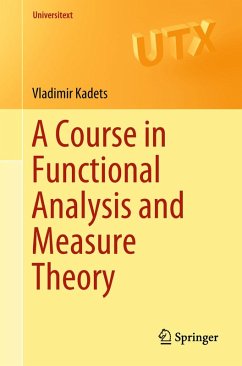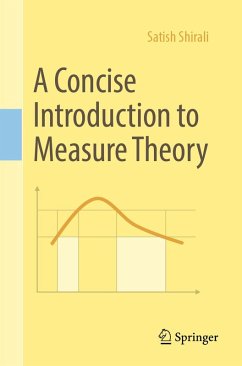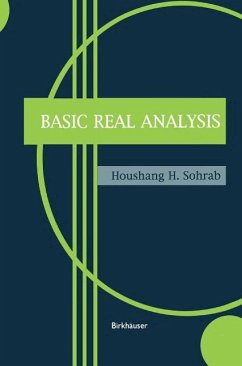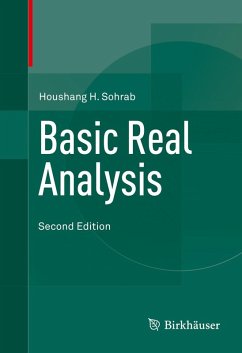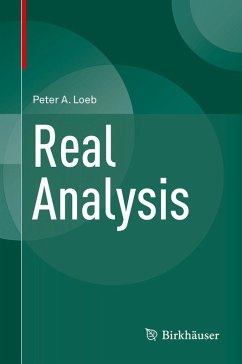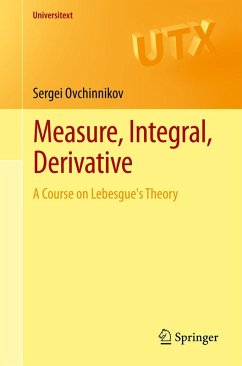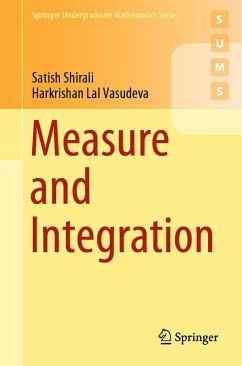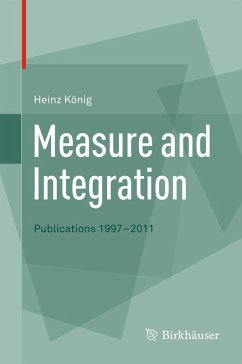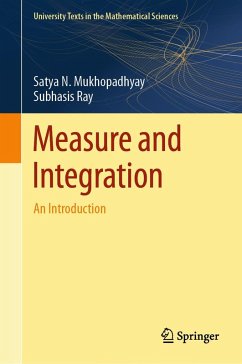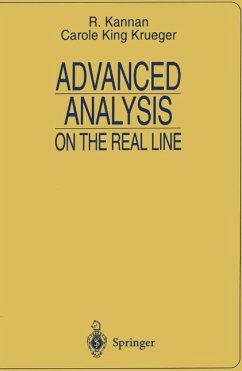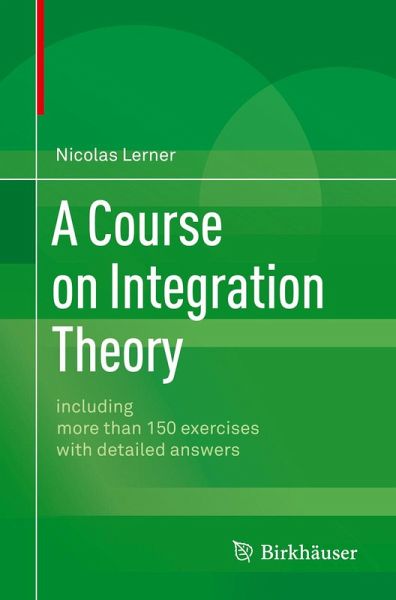
A Course on Integration Theory (eBook, PDF)
including more than 150 exercises with detailed answers
Versandkostenfrei!
Sofort per Download lieferbar
64,95 €
inkl. MwSt.
Weitere Ausgaben:

PAYBACK Punkte
32 °P sammeln!
This textbook provides a detailed treatment of abstract integration theory, construction of the Lebesgue measure via the Riesz-Markov Theorem and also via the Carathéodory Theorem. It also includes some elementary properties of Hausdorff measures as well as the basic properties of spaces of integrable functions and standard theorems on integrals depending on a parameter. Integration on a product space, change of variables formulas as well as the construction and study of classical Cantor sets are treated in detail. Classical convolution inequalities, such as Young's inequality and Hardy-Littl...
This textbook provides a detailed treatment of abstract integration theory, construction of the Lebesgue measure via the Riesz-Markov Theorem and also via the Carathéodory Theorem. It also includes some elementary properties of Hausdorff measures as well as the basic properties of spaces of integrable functions and standard theorems on integrals depending on a parameter. Integration on a product space, change of variables formulas as well as the construction and study of classical Cantor sets are treated in detail. Classical convolution inequalities, such as Young's inequality and Hardy-Littlewood-Sobolev inequality are proven. The Radon-Nikodym theorem, notions of harmonic analysis, classical inequalities and interpolation theorems, including Marcinkiewicz's theorem, the definition of Lebesgue points and Lebesgue differentiation theorem are further topics included. A detailed appendix provides the reader with various elements of elementary mathematics, such as a discussion around the calculation of antiderivatives or the Gamma function. The appendix also provides more advanced material such as some basic properties of cardinals and ordinals which are useful in the study of measurability.¿
Dieser Download kann aus rechtlichen Gründen nur mit Rechnungsadresse in A, B, BG, CY, CZ, D, DK, EW, E, FIN, F, GR, HR, H, IRL, I, LT, L, LR, M, NL, PL, P, R, S, SLO, SK ausgeliefert werden.



